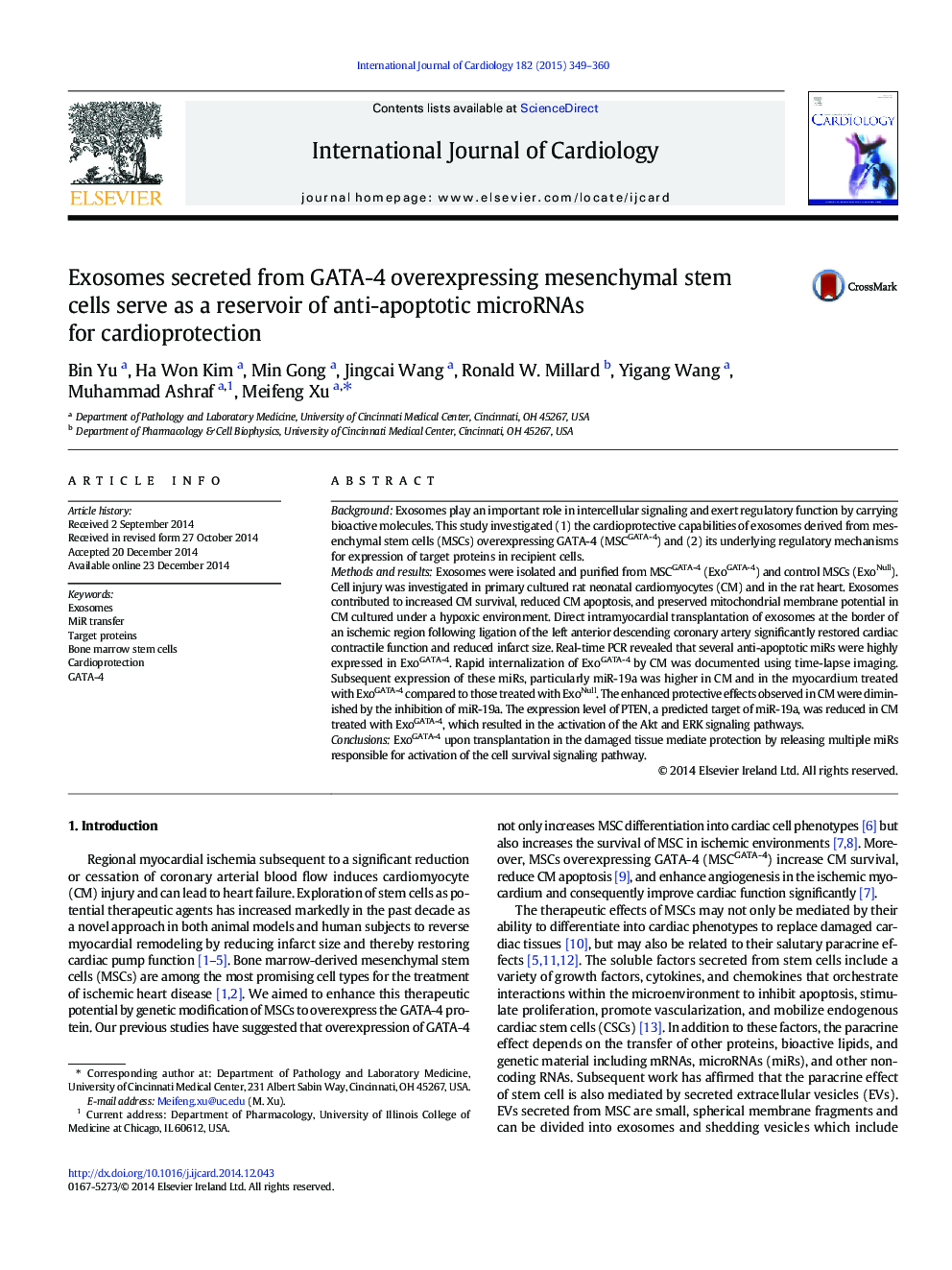| کد مقاله | کد نشریه | سال انتشار | مقاله انگلیسی | نسخه تمام متن |
|---|---|---|---|---|
| 5967405 | 1576170 | 2015 | 12 صفحه PDF | دانلود رایگان |

- This study highlights the importance of MSC overexpressing GATA-4 derived exosomes (ExoGATA-4) in cardiac protection.
- ExoGATA-4 release anti-apoptotic miRs, which result in a regulation of various cell survival signaling pathways.
- Exosomes are potential candidates for adjunctive therapy for acute myocardial infarction.
BackgroundExosomes play an important role in intercellular signaling and exert regulatory function by carrying bioactive molecules. This study investigated (1) the cardioprotective capabilities of exosomes derived from mesenchymal stem cells (MSCs) overexpressing GATA-4 (MSCGATA-4) and (2) its underlying regulatory mechanisms for expression of target proteins in recipient cells.Methods and resultsExosomes were isolated and purified from MSCGATA-4 (ExoGATA-4) and control MSCs (ExoNull). Cell injury was investigated in primary cultured rat neonatal cardiomyocytes (CM) and in the rat heart. Exosomes contributed to increased CM survival, reduced CM apoptosis, and preserved mitochondrial membrane potential in CM cultured under a hypoxic environment. Direct intramyocardial transplantation of exosomes at the border of an ischemic region following ligation of the left anterior descending coronary artery significantly restored cardiac contractile function and reduced infarct size. Real-time PCR revealed that several anti-apoptotic miRs were highly expressed in ExoGATA-4. Rapid internalization of ExoGATA-4 by CM was documented using time-lapse imaging. Subsequent expression of these miRs, particularly miR-19a was higher in CM and in the myocardium treated with ExoGATA-4 compared to those treated with ExoNull. The enhanced protective effects observed in CM were diminished by the inhibition of miR-19a. The expression level of PTEN, a predicted target of miR-19a, was reduced in CM treated with ExoGATA-4, which resulted in the activation of the Akt and ERK signaling pathways.ConclusionsExoGATA-4 upon transplantation in the damaged tissue mediate protection by releasing multiple miRs responsible for activation of the cell survival signaling pathway.
Journal: International Journal of Cardiology - Volume 182, 1 March 2015, Pages 349-360